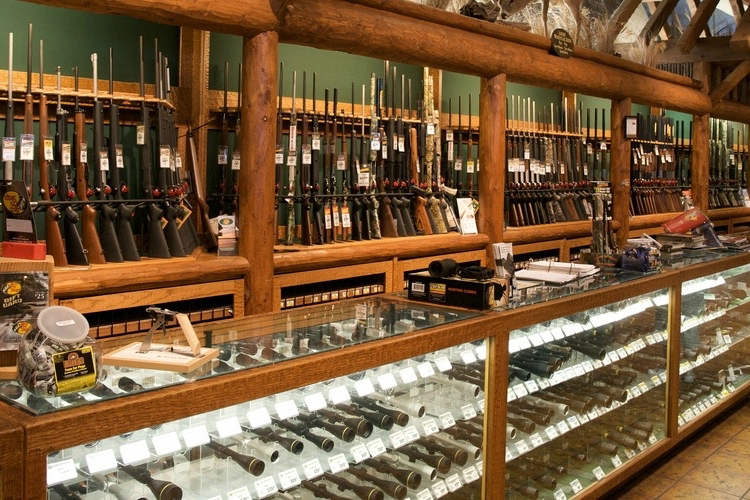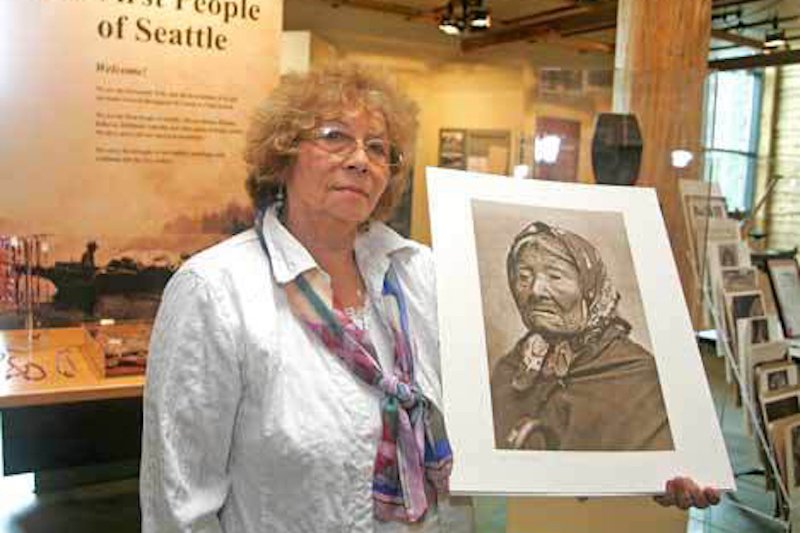This November, Washingtonians will vote on a gun control measure intended to stop mass shootings, suicides and other firearm-caused tragedies before they strike. Initiative 1491 would allow family or housemates of a person at risk of harming themselves, as well as police, to step in and prevent the person from buying or possessing guns, by petitioning for a court order to this effect.
The initiative comes two years after Washington voters approved another gun control measure, Initiative 594, which requires universal background checks on gun purchases. Both initiatives are the work of the Washington Alliance for Gun Responsibility, a group composed of a triad of two nonprofits and a Political Action Committee.
As some analysts see it, activists in Washington are increasingly getting around the potent gun lobby by bypassing legislative action and turning to voters and ballot measures instead. Cliff Schecter in The Daily Beast suggests that this approach could be a model for other states in a nation where getting a handle on gun control continues to be an elusive goal. “What the Alliance for Gun Responsibility and its allies are doing is nothing short of trailblazing the path that can free America from the hostage takers of bought-off legislatures and gun nuts with grudges,” he writes.
I-1491 has earned a long list of endorsements. So far it’s raised over $3 million dollars, with significant contributions coming from tech leaders like Steve Ballmer and Paul Allen. This is a good deal less than the more than $11 million that helped push through I-594. But it’s far more than any opposition campaign has raised – namely because the opposition is completely broke.
Not surprisingly, the National Rifle Association is opposed to I-1491, but according to public disclosure records, it and other gun groups haven’t raised so much as a cent to mount an opposition campaign.
Still, the Washington Alliance for Gun Responsibility is prepared for any last minute action from the gun lobby, according to its spokesperson Joanna Paul. “The various gun lobby groups have a history of coming in late with a lot of money, so we’re always thinking about that,” she says.
But so far, the only opposition campaign has no employees or funding. It’s essentially run by one man, mental health advocate David Combs.
Combs says he is concerned that the ballot language for I-1491 uses mental illness as one of the criteria for temporarily removing people’s guns. The measure states that family and household members and police could petition for a court order preventing access to guns “by persons exhibiting mental illness, violent or other behavior indicating they may harm themselves or others.”
The way he sees it, this language stigmatizes mental illness sufferers by linking them to violent criminals.
“I read the initiative — I may have even signed it when it first went around, and then I looked at the language and when I saw mental illness I just was shocked,” Combs says. “It just wasn’t necessary. It’s like, you want to describe the behaviors, and mental illness is not a behavior, it’s an illness. It was just a real red flag for me.”
Combs points out that the local Washington branches of the National Alliance for Mental Illness (NAMI) and the ACLU don’t support initiative, though neither have come out against it either.
The no-frills WordPress site Combs recently created for his Know-1491 campaign includes emails from both NAMI and the ACLU elaborating on their positions.
“We are concerned that creating new firearms laws based on mental illness would have the effect of erecting more barriers to treatment, by raising fears that seeking help will result in loss of gun ownership rights,” NAMI wrote. “This law would also reinforce false public perceptions about the relationship between mental illness and gun violence.”
Paul acknowledges Combs’ point that mental illness sufferers are no more likely to be violent than the general public, and in fact are more likely to be victims than perpetrators of crime. But she points out that mental illness is only one of 14 factors a judge can use in deciding whether someone is too dangerous to own guns.
Also, Paul notes a major goal of I-1491 is preventing suicides, which require immediate attention to stop in time. As Seattle Weekly’s Sara Bernard reported earlier this year:
“Suicides by firearm strike in far greater numbers than homicides. In Washington, nearly 80 percent of all gun deaths are suicides; in King County, roughly two-thirds are. According to a 2013 Washington State Health Services report, Washington has a significantly higher firearm suicide rate than the national average, and in parts of the state with the highest rates, one of the corresponding factors is ‘high firearm availability.’”
“I think the important thing to remember is that this language was drafted with a wide spectrum of experts to really address the problems that real families are facing,” Paul says. “I think David speaks from a place of real passion, but this law is very important to real people in Washington, and I think it’s going to be very useful in a lot of different situations.”
Paul says she is hopeful I-1491 will pass in November, though “It’s obviously a very complex and volatile election season, so we’re not resting on any laurels.” A poll of 500 registered voters released in August showed 64 percent support for the initiative, with 18 percent either opposed or undecided.
In contrast to I-1491’s multimillion dollar war chest, Combs said his one-man campaign is in debt, though he expects to raise enough money to pay it off. He tried to hire a treasurer for the campaign, only to have the candidate back out, not wanting to oppose politically influential Washington Alliance for Gun Responsibility. Combs said he has a busy schedule doing interviews and speaking.
“It’s been a challenge, but I feel like I need to make sure voters know what they’re voting for.”








